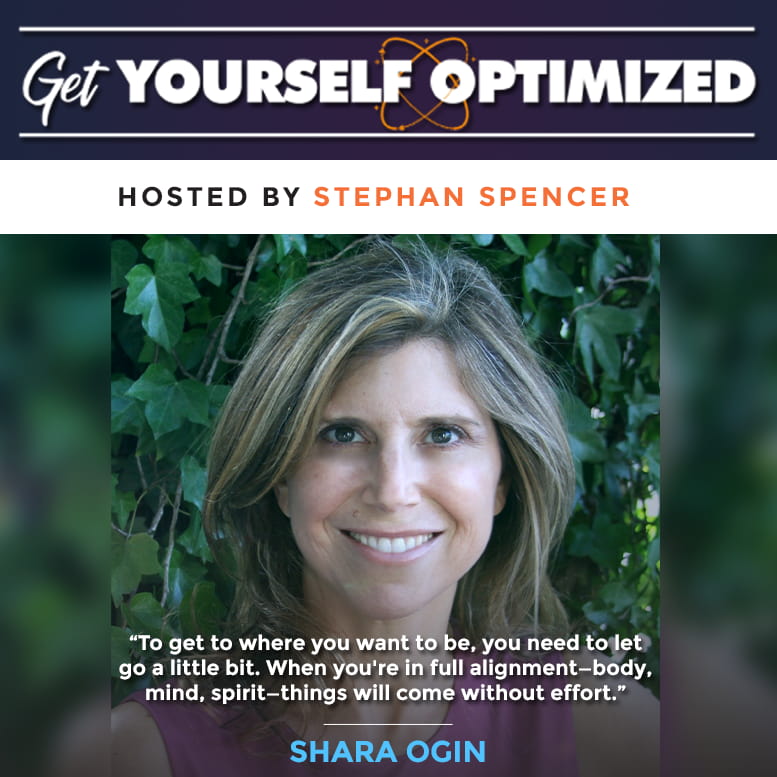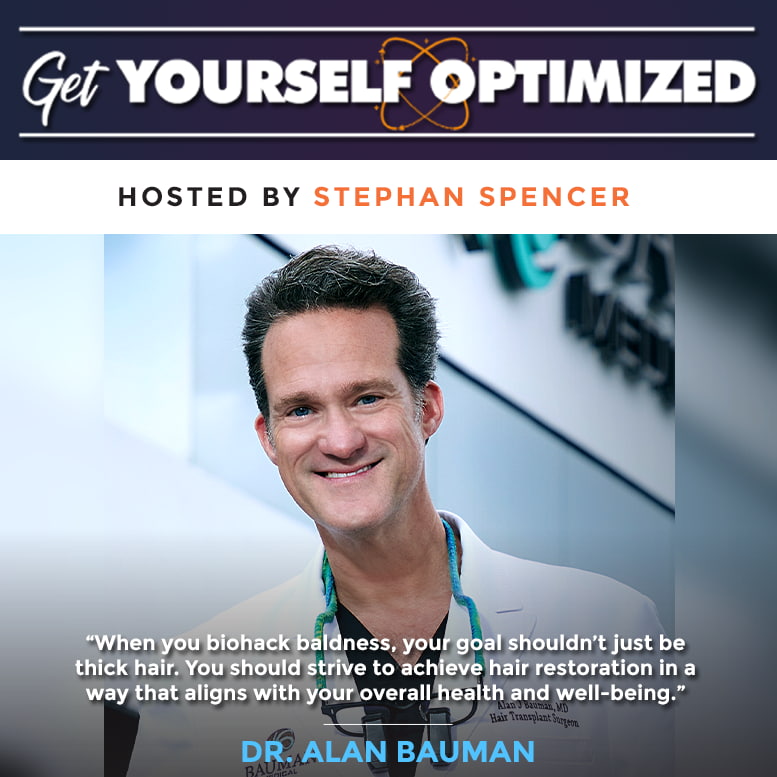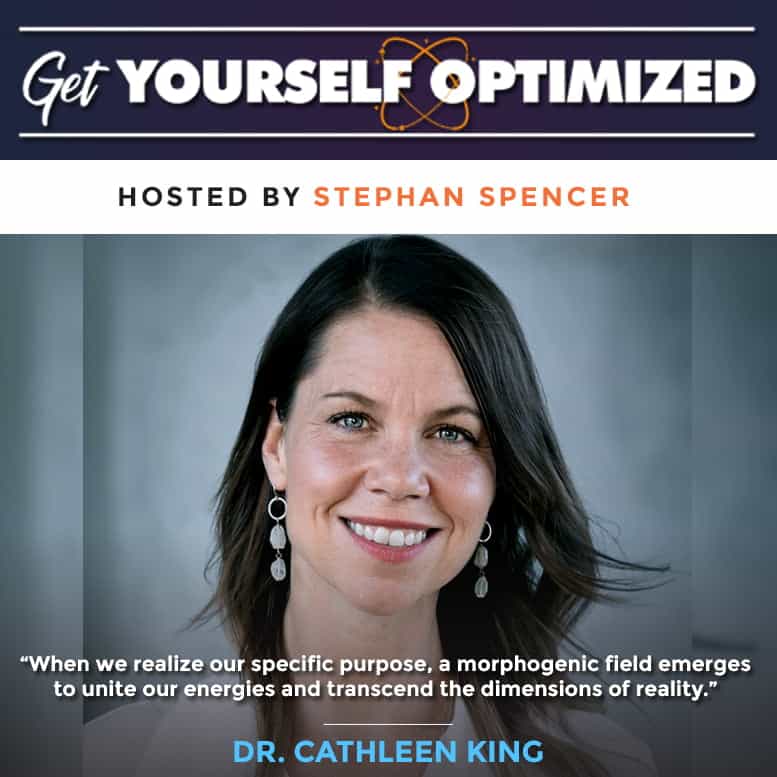Transcript
Ben, it’s great to have you on the show.
It’s great to be here, Stephan. Thanks for the invite.
First of all, let’s talk about what dirty genes are. I’ve not heard that term before meeting you. I’d love our audience to understand more about what makes a gene dirty.
I never understood what a dirty gene was myself until I started watching Bruce Lipton talking about epigenetics and how our genes don’t dictate our destinies. I was reading further about epigenetics. I saw the tale of two mice about how these mice were genetically basically bred and selected to have cardiovascular disease, cancer, and diabetes. They had the genes for it. They were getting it obviously. The researchers needed the mice to get those diseases so they could try different drugs, which was interesting. Then a researcher said, “These mice are genetically susceptible to these three conditions, serious ones. What if I gave them additional nutrients in their food and that was the only intervention?” What happened was they didn’t get any of those conditions, even though they were genetically susceptible to cancer (a big one), cardiovascular disease (which is huge), and diabetes (which is massive across the globe). With these nutrients, they did not get these conditions.
That led me to believe and she opened up further massive inquiries with a bunch of other researchers and to this day, the whole field of epigenetics. Dirty genes are basically the concept of a gene that does not function optimally. That’s all a dirty gene is. Some days you roll out of bed and you feel great, some days you roll out of bed and you don’t want to roll out of bed, you stay there. Your genes are the same way. Some moments, you give them all the tools and a clean environment and they feel great. Other days, you stay up too late. You go for a run in a very polluted street with a lot of car exhaust and smog. You forget to take your vitamins that morning and you eat fast food because you were in a hurry. You have a huge argument with a significant loved one, which puts you in a huge funk. All of that leads to massive chemical compound built-up in your body. Your genes get overloaded thus, they get dirty. The concept of the dirty gene then dictates something dirty can get cleaned up. That’s why I love the term dirty genes because it’s not a broken gene. It’s not a mutation. It’s not a defect. A dirty gene is simply something that with your own tools, your own will, and education, you can clean up to make it better, function better and thus feel better.
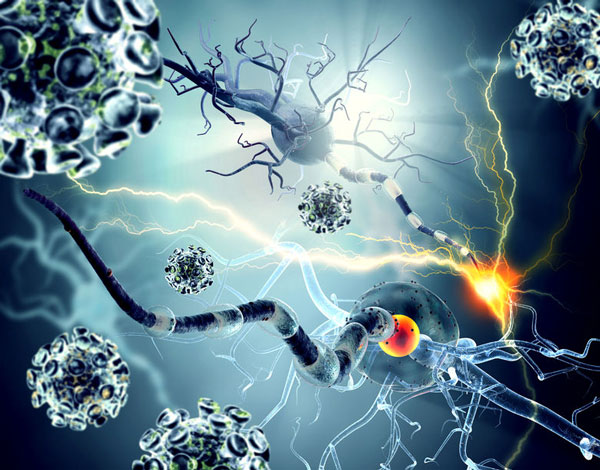
It’s hopeful for our readers because if you have a genetic mutation, what do you do with that? Supposedly in the future, we’ll have the ability to go in and edit our genes with CRISPR or whatever. Right now, that’s all hypothetical or maybe if they’re doing it, they’re doing it in China and it’s underground. If you have genes that are not functioning optimally because of epigenetic factors, because of environmental stresses, you can address that and get them finely tuned in and working optimally.
CRISPR is a technique where they’re looking at cutting out certain bad parts of genes and making them the good part again and making them better. In some cases, especially mitochondrial disorders where if you’re born with a certain genetic variant, you are going to have a very serious disease and condition and potentially die at a very young age, sometimes even at birth. That technology is interesting. Apparently, we’re far from that because we’re realizing it’s not that simple. There are very serious genetic diseases out there. When I talk about a dirty gene, I’m not talking about genetic variants that are very significant like celiac disease, for example. With celiac disease, that’s a dirty gene that you’re born with.
There are dirty genes that you can be born with and there are dirty genes that are acquired. Sometimes you are born with an absolutely filthy gene that’s rusted and broken. Like celiac, you are very susceptible to gluten. You cannot touch it. If you do, you’re going to get very ill and sick. There’s no fixing that. The only fix is the removal of gluten. Once you understand that, it’s very powerful because once you remove gluten from your diet, you feel great. On the other hand, Dirty Genes, the book that I wrote, it’s discussing genes that can be born dirty. If you do have a genetic variation in any of these seven genes that I discussed in the book, they are not life-threatening. They are not going to kill you. They are definitely going to alter how you think sleep, behave, tolerate certain foods, your pregnancies, your energy levels and so on.
If you support them, then you cleaned them up. We all have these Super Seven Genes in our body. They are key. If you do not have any variations in them, meaning that there’s no defects or mutations or whatever you want to call it, they can still get dirty from your lifestyle, your diet, and your environment. It’s very important for people to know that because a lot of people will do genetic testing. They’ll say, “I don’t have any genetic variations. I’m not immune to it all.” They get all hopeful. If they’re sitting in a doctor’s office, the doctor looks at them and says, “Apparently, you are not so ideal because you’re sitting across from me right now.”
If you could walk us through what those Super Seven Genes are, that would be quite helpful.
Our genes don't dictate our destinies. Click To TweetThere are about 18,000 to 20,000 genes in the human body. You’re thinking, “Dr. Lynch says he talks about eight in his book. You’re talking with me about seven genes out of 18,000, that’s a pretty low percent if you calculate that.” We are talking 0.0003% of the genome. That seems pretty weak. The reason why we are discussing these Super Seven Genes in the book is one, they’re very heavily researched. There is a whole ton of data in the literature that’s scientifically validated and proven that they are going to contribute to various problems or added benefits and also how you can support them and make them function better. That’s one of the reasons why they’re in there.
The other reason why they’re in there is I have a lot of clinical experience either by myself or hearing from other doctors or the combination of both. There’s a lot of clinical evidence with these. The other side of that is these seven genes are very influential on most of the other genes in the human body. If you look at one gene that I talk about in a book called MTHFR, this gene makes your body’s number one form of folate. You probably hear about folic acid all the time and how important it is during pregnancy, neurological health, anemia and all that. It’s not folic acid that you need. Its other types of folate and methylfolate are one of them.
Folic acid is supposed to turn into methylfolate in your body. That’s why they make it for you. The problem is if you have a lot of genetic variations or these genes are dirty, you’re not going to be able to convert that folic acid into methylfolate. You’re going to have problems 100%. MTHFR, this one gene that’s talked about in Dirty Genes will influence over 200 other genes in the body. That’s one. If you clean up that one, now you’ve knocked a bunch of dominoes over for 200 to others. That is the significance of these seven genes. There’s another one called DAO. DAO is a gene that resides in many areas of the human body. A big one is in the intestine and the placenta. A lot of reasons for recurrent miscarriages or problems of pregnancy or intolerance to various foods or intolerance to wine or citrus or fish, these are having to do with this DAO enzyme. Not solely, but significantly. If you clean up that particular gene, you’re also feeling better. There are others too.
If you have a mutation or variant of MTHFR which you can check if you get a 23andMe test and you go to the 23andMe website. You log in and you download your raw data. You load that raw data into an open source tool that will do the analysis of that data and you can see, “I have the MTHFR variants and that means I’m not processing folic acid into methylfolate. Then I would need to make some diet changes. I maybe need to take some supplements. I might need to take some pharmaceuticals.” Who knows? Depending on what variants I’m getting in these Super Seven Genes, I needed to know if I have the situation. Even if I don’t, it doesn’t mean I’m out of the woods. I still need to take care of my health and do preventative measures.
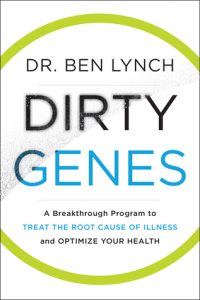
There are about seven genes that convert folic acid into methylfolate and MHTFR is the last step. It’s not a straight shot, which we all want it to be very simple but it’s not. Out of simplicity and making it make sense, that works. What people also need to know is that even if they do not have a genetic variation in MTHFR, they should be avoiding folic acid because folic acid gums up the machinery. A lot of the research done on folic acid was done on rats. The rats have a very good ability to convert folic acid into good forms of folate. Humans do not. In fact, the enzymes in rats, they convert folic acid and methylfolate work about 200 times better than humans. That is one area of research that a lot of people need to understand. Although genes of mice, rats, and humans are very similar, they don’t always function the same. We cannot draw parallel lines between a rat study or a mice study into a human study or an outcome. I’ve got a video on YouTube that goes into quite a detail on folic acid side effects or if you want, go to DrBenLynch.com and learn about folic acid. I have an article there about folic acid side effects. It’s solid. I have the research evidence there for you too.
What about APOE? I’ve heard that there are some correlations in regards to different variants of that gene to Alzheimer’s disease. Is that correct?
Yes. APOE is a very big gene in Alzheimer’s world. There’s been a ton of research in that. While it is associated with increased early onset dementia, then people need to understand that if you do have that variant, you are not necessarily going to get it. Yet, a lot of these variants, what they do tell you is if you could do genetic testing and you get your results back, say you have MTHFR or the APOE 44 variant, which does increase your risk for Alzheimer’s, it increases your susceptibility. A lot of people look at the genetic test, me included when it first came out and my understanding wasn’t very good. I looked at it, and I had MTHFR. I said, “Crap.” I looked at that and I had an APOE 34. I’m saying, “My goodness.” My son had APOE 44. I’m saying, “My goodness.” You have all this guilt, blame, and all these things. You’re nervous and scared.
The whole goal with Dirty Genes is to feel empowerment and to make these changes. APOE 44 and APOE 34, these are the nomenclature. There’s a lot of nomenclature in any field. You’re an SEO expert. I’m sure you understand nomenclature that will throw me under the bus pretty quickly. Every specialty has nomenclature. APOE 44 is a significant variant. What I want people to walk away with is if this variant does increase susceptibility to Alzheimer’s, what do I need to do to protect myself? I’ll give you a story, one of my sons has APOE 44 and I saw that. I said, “If he ever hits his head,” and unfortunately, he hits his head the most, out of all the other three kids, “I have a protocol where I give him Liposomal Curcumin, Vitamin C, Liposomal Glutathione and PQQ. I rest him.” It’s very important because if he bumps his head or anyone with APOE 44, there’s a huge roaring fire in their brain. It takes a lot to put that fire out.
If a person with an APOE 22 or APOE 23 or a 33 get bonked on the head, they get a little sizzle but it will go out. Basically, if you have an APOE 44, you need to be mindful of your diet. You’ve got to be watching your fasting insulin levels, your glucose levels. You need to be getting your sleep because sleep is the time to defragment your brain. There are great books on Alzheimer’s that talk about the significance of sleep. If you are not getting your deep and REM sleep, you’re not defragging your brain. You are going to get problems with early onset dementia. Sleep is key.
Fasting glucose levels, that’s something to keep an eye on. How do you do that? If somebody doesn’t have diabetes, they’re probably not in the habit of checking their glucose levels regularly with the monitor. Is that something that you would recommend people do even if they don’t have diabetes or hypoglycemia?
I would say it’s a good thing to look at periodically. No one loves punching their finger with a little needle, getting a drop of blood and putting it into a device that tells you a score that it could be high. Nobody thrives on that. I do have a blood glucose tool in my bed stand. I do check it periodically. In fact, I’m due to look at it again. I also use the Oura Ring. The Oura Ring is a useful tool. It helps gauge my inflammation, my heart rate, my deep sleep, and my exercise intensity, how well I’ve rested and recovered. By looking at Oura Ring statistics, I will know from there if my blood glucose is going to be higher or lower based upon the scores in the morning because they do correlate.
A dirty gene is a gene that is not functioning optimally. Click To TweetIf you are inflamed, your glucose in the morning is going to be higher. If you’re not rested, it’s going to be higher. The flip side is also true. If you’ve got some good deep sleep, good REM sleep and you had a nice low heart rate earlier on in the evening versus later on in the evening, your inflammation is down and you’re going to have a lower blood glucose score. I would say definitely get a blood glucose meter on Amazon. They’re very inexpensive. Make sure you read the reviews. I forget which one I have. It doesn’t hurt. One trick for any time you do a finger stick with a device is you want to warm up your hands a bit. You need to drive off. With the little needle, you punch the side of your finger, not directly on the pad itself because the pad has the most nerve endings. The side of your finger has fewer nerve endings. That makes sense. You’re not handling things with the side of your fingers. The pads of our fingers are very sensitive. Punch the side of your finger and then test very first thing in the morning. You do it periodically and you’re going to start understanding, “My average on the days I’m stressed is this. The average when I eat like crap is this. If I drink alcohol the night before, it’s that.” I’m a man of averages. I’m not very into tracking every single day. It’s absolutely key that you do check glucose levels. If glucose is high, there are a lot of things wrong.
When you say check periodically, how often is that? It depends on everybody in their genetic makeup if they have hyperglycemia or whatever. What do you do?
What I do is I would look at it in various situations, first thing in the morning and I would do it consecutively for about a week so getting some data for a week. I would look at my Oura Ring stats. How was my sleep? How were my heart rate, my breathing rates, and my temperature? I would think back, what did I have for dinner? Did I eat late? Did I not? Did I drink alcohol, which I very rarely do? I’m talking like once every few months, I’ll have a little drink. I can’t drink beer because it has gluten. I’ll have a little bit of vodka or something because it’s cleaner alcohol. That’s only with the company and it’s very rare.
Maybe I’ll get stressed out, one of my kids would put me over the edge or something at work will make me all crazy. That’s a good time to check your blood glucose and to see what the impact of stress does. You’ll look at that and like, “My blood sugar is shot up.” It teaches you when you have that number in front of you, you’re like, “Stress shot my glucose up. I need to be careful.” Mike Mutzel, he has a great YouTube channel called High-Intensity Health. He has a great podcast. He talks about how he will check it after meals because he’s in ketosis. He does the Ketogenic Diet. He talked about you can check your blood glucose right after a meal. You go for a walk in ten to fifteen minutes, your blood glucose levels can drop like 20 to 30 points after a ten to fifteen-minute walk. That shows you the power of exercise, which is pretty cool. Those are some scenarios in which I would check my glucose and you should as well to get some good feedback and traveling too. Traveling is very hard on the system. Mike Mutzel showed a picture of him checking his blood glucose in the airplane. His blood glucose was sky high. You might be fasting, doing all these healthy things and taking your vitamins, your bodies are being exposed to stressors and that’s triggering your glucose for various reasons. Travel is a tough one on people. It does shoot your glucose high. Checking in an airplane or a long road trip, it could be also recommended.
How long should we wait to check our glucose levels after eating a meal? When you eat, that shoots up your glucose levels so we need to do this all fasting. Is it two hours after you eat?
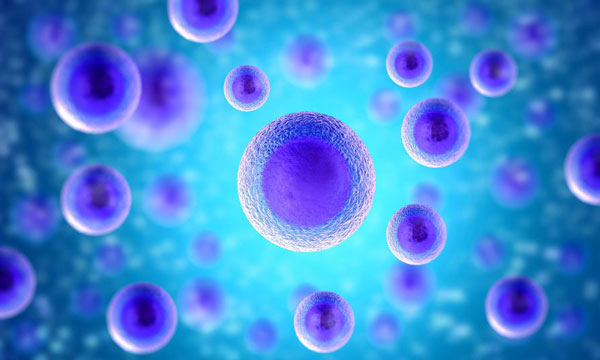
No, it’s good to see how fast and how high your blood glucose levels skyrocket after a meal. Mike Mutzel, I referenced him a lot because he’s a buddy of mine. I look at it as his Instagram feed and so on. He was at a vegetarian restaurant, apparently healthy food, it looks great. Vegetarian food, there’s very little protein. There’s usually very little fat. Plants can be very high-carb based. He checked his glucose level before, during and after. He was surprised at how high his blood glucose levels got from that meal. Whereas if he checks his blood glucose levels during a meal when it’s higher fat, moderate protein, lower-carb meal, his glucose levels don’t shoot up anywhere near that. It’s interesting to see how fast your glucose levels shoot up because you should not get them sky high. If you drink soda, that’s a problem. There’s something called the glycemic index too of how fast your blood glucose will shoot up and how fast it will absorb that sugar. You need to reduce that.
If you have high blood sugar, that is implicated in a whole slew of different diseases. It creates inflammation in your circulatory system. You end up getting plaques in your arteries. You get heart disease. You can get diabetes. You get potentially cancer as well.
It affects every single thing. You can get dementia. You can get irritability. You can get depression. You can get insomnia. Anytime you have high blood sugar, you’re going to get high inflammation. The inflammation is going to cause a cascade of a myriad of things. It’s very problematic.
It sounds like I should be checking my glucose levels a lot, at least for a while and periodically a little bit more spread out. I need more data. What gets measured gets managed according to Peter Drucker. Without tracking this stuff, you’re flying blind.
Alessandro Ferretti is another dear friend of mine. He’s based in the UK. He’s brilliant in tracking devices. In fact, he had presented it at conferences when I was presenting back in the day. Alessandro is into tracking. If you want to learn more about tracking, Alessandro is the man. Alessandro Ferretti, Mike Mutzel, you can watch YouTube videos from them too.
Sleep is the time to defragment your brain. If you’re not getting deep and REM sleep, you're not defragging your brain. Click To TweetYou mentioned that Mike Mutzel was at a vegetarian restaurant and did before, during and after checks of his glucose levels. That definitely perked my ears up because I’ve been vegetarian for well over a decade, probably decade and a half. I switched to fully vegan. What’s the implications there from a health perspective? I do it in part for animal rights reasons. Even if you convince me that it would be healthier, it would be a hard road to go down to convince me it’s good for the animals and the environment too. I’m curious, what would you recommend for a vegan or a vegetarian so that we lower our inflammation, don’t spike our glucose levels as much and avoid the potential for things like Alzheimer’s.
Any lifestyle is going to have holes, whether you’re a vegan, vegetarian, omnivore, carnivore, following no meat diet, GAPS diet, Paleo Diet, Keto Diet, all of these things have weaknesses. I aim to be more of a seasonal person. I don’t follow any diet. I follow intuition and respect what my body desires to eat as long as it’s not crap. It’s mind over matter sometimes, especially when you’re walking down the aisles of impulse buys. I would say for vegans and vegetarians, you’ve got to be very mindful of obviously Vitamin B12, which most of you are very fully aware of that. Supplementing with Vitamin B12 is key. You need to be looking at what’s lesser known, which is choline. Choline is typically found in animal products. However, you can also get it in quinoa and beets. You can be looking at those foods. You can also go to a website called NutritionData.Self or you can type in high-choline foods and look at what’s going on there. Sunflower seeds can be pretty high in choline. These are important. You can also supplement with choline or you could supplement directly with phosphatidylcholine.
My brother is a vegan and his wife is a vegan as well. I would maybe even say vegetarian because it seems like they go back and forth at times. Let’s say they’re vegetarians. I’ve given them in the past a product called Optimal PC, which is basically phosphatidylcholine derived from sunflower seeds. You don’t want to get a soy-derived. I’m not a fan of soy. If you’re a vegan or vegetarian, I’d also watch out for soy-based products, one for GMO and two for the processing that they use. Hexane is a very commonly used solvent in the soy food industry and the soy supplement industry in order to prepare soy for various reasons. It would be very mindful with soy plus it can also increase hydrogen sulfide base bacteria in the digestive system and lead to foul-smelling gas and stool. If you smell very sulfury or rotten eggs, it could be from hydrogen sulfide based upon the diet of high soy or possibly even high cruciferous veggies, which were great. It can lead to an imbalanced microbiome.
To summarize, B12, choline, make sure you’re getting your folate and make sure you’re getting adequate protein. Basically, let’s say about one gram of protein per kilo of body weight, which is 2.2 pounds. I’m a 200-pound guy so apparently, I need about 100 grams of protein or so. Maybe 80, 90 and it all depends on your activity level. It also depends if you are injured or post-surgery. If you are actively exercising and lifting weights, you need more protein because muscles are made from protein. If you are a couch potato and you’re not doing much, you’re sitting at a desk working and you don’t go for walks, you need less protein. If you have surgery and need to rebuild your tissues, you need more protein so things like that.
You mentioned hexane is a processing agent. That’s nasty stuff. I remember back when I was studying for a Ph.D. in Biochemistry, we work with solvents like hexane. You needed to work with it under a vent. It was like a machine that you would work in the hood. It would suck away all of that solvent vapor so you’re not breathing it in. It’s bad stuff. I’m surprised by some of the agents that they put into our foods in order to process it. It may not stay there. It might mostly be cleaned out afterwards. With high fructose corn syrup, sulfuric acid is used to break open the cell walls of the corn cells so that the fructose can be released.
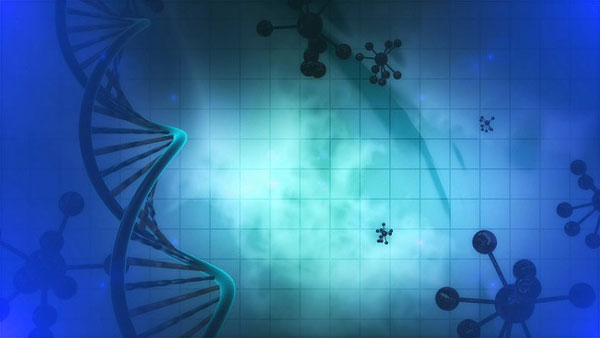
I was not aware of that. I know that processing is very significant for high fructose corn syrup. I didn’t know that one.
I learned it from the documentary, King Corn. That’s a good movie.
The supplement industry too, a lot of ingredients will have to be using solvents and various things. In fact, I researched a lot of this, how nutrients are formed and created. There’s a whole system going there. You need to be very mindful making sure those solvents are completely removed. They’re tested. They show you the before and after. Methylcobalamin is one of those compounds where they will use solvents to force the methyl group onto the cobalamin. There are other types of B12 that are more of a fermentation. There is no solvent used. That’s the one we use at Seeking Health. You’ve got to know these different types of things because you read the label and it says methylcobalamin. Is it methylated because it’s solvent based or is it fermented? It’s good to know these types of little details.
It’s so much work though to go through all of these labels before you buy the products and everything.
You don’t even know because it does not even say on the label. You have to know that a particular supplement company does their due diligence. It’s always working hard on finding good quality sources. That’s what we do at Seeking Health. There are other supplement companies that do a good job too. The problem with supplement companies is you think you’re all good and they get bought out. You’re not informed. Now, they’re owned by this big private equity firm and they take shortcuts. Now they’re not as clean as they used to be. It’s a constant time suck for people.
Your supplement company is called Seeking Health. My wife is using your supplements. Tell us a little bit more about what is involved in making sure that if you are a supplement company, that everything is clean along the whole production chain and sourcing from growing the herbs that are being used or whatever other food sources. There are so many little dirty tricks that are used to reduce cost. I have learned about organic-labeled products. They can be still labeled as organic, but the land that they’re using is so toxic because they douse the soil with five years’ worth of pesticides. For that, they are not organic. They’re conventional. The next year, they’re not organic either. They’re conventional. Two years later after dousing it with a five-year amount of pesticide, they can be labeled as organic. There are no bugs or weeds because it’s still full of the pesticides. We’re eating “organic” vegetables that should not be labeled as such.
I saw an article that I shared on my Instagram account. They were talking about how these orange trees in Florida were getting brown spots and they were sick. Instead of nourishing the soil with natural fertilizers and compost tea, good drainage and what have you, they decided that it’s okay to spray the trees with antibiotics. Here we are talking half a million acres of trees sprayed with antibiotics and that’s huge. I said, “That’s interesting. I wonder if someone has a citrus farm and they spray their trees within antibiotics, can they still declare organic?” They can. There are a couple of antibiotics that are commonly used in the industry. They can still declare as organic. There are a lot of side tricks.
In the supplement industry, it generally is an unregulated industry. We are self-regulated because I want our supplements to work. That’s the bottom line. We work with preconception and prenatal. That’s a very important area. You can’t be messing around there. Giving you an example, I finished formulating a product that’s coming out. It’s called Gallbladder Nutrients to support bile flow and release of bile into the small intestine for various amazing things. It took about two years to make this product. I was pulling my hair out. The reason was we could not find a clean milk thistle. We couldn’t find clean apple pectin and we still couldn’t. I still wanted to add apple pectin fiber to our formulation.
I couldn’t because we couldn’t find it clean enough. You’re digging back and forth. You find a supplier of an ingredient or a manufacturing ingredient. You get all excited because it sounds good. They send it to you with their labs. They’re all looking shiny. You have to send it to a third-party lab to make sure it’s legit. It comes back and it’s not legit. It’s a very time-consuming process. It’s one that you get excited because you design a formulation that you know is going to work. You have to make compromises. Either you’re going to include that not so clean ingredient in your product or you’re going to not include it at all or you’re going to keep looking and hopefully, the industry has something clean for you to use. It’s not always that easy. Xylitol can be coming from GMO corn or it can come from birch trees. It’s very hard to source the Xylitol from birch trees, but that’s what we do. We don’t have any GMO corn-derived Xylitol in our products.
GMO corn, if you’re uninformed, you might think, “GMO, no big deal. It’s genetically modified. I can eat it and I’ll be fine.” What it means is that the gene that they’re inserting into the corn makes the plant resistant to Roundup. That Roundup is toxic to everything and everyone. That’s why it’s effective at killing everything other than the corn because nothing can survive it. No other plants which haven’t been genetically modified to be resistant to it can survive that horrible toxin.
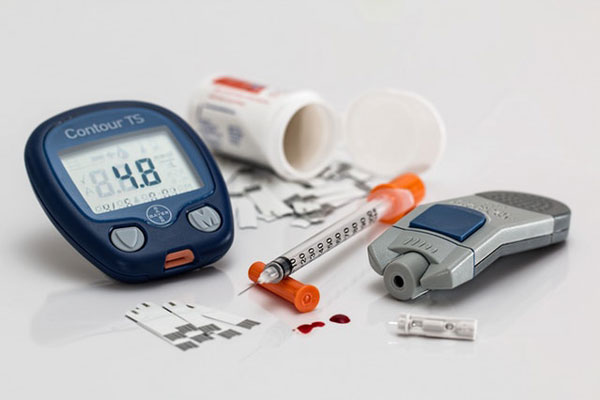
Roundup is one of the main reasons that the probiotic industry is booming because what Roundup does is it kills our Bifidobacterium bacteria in our gut and our lactobacillus but mainly the Bifidobacterium bacteria. At the same time, it increases the growth of harmful bacteria. This is found in the National Library of Medicine and published research. Here we are spraying our food and destroying the soils. We’re eating foods even organic ones that have Roundup because it’s everywhere.
It’s not only everywhere. It rains down on us.
It’s in the schools. It’s in the parks. It’s in the playgrounds. It’s everywhere. Please take your shoes off when you come from outside-inside. Your neighbors are spraying it. I saw two houses down, their landscaper is spraying it. We live on a lake. It goes right into the lake. It’s everywhere. Please take your shoes off. Make it an enforced deal because you’re getting all sorts of stuff on your shoes. We’re talking dirty genes. This stuff causes dirty genes. There’s a poor gentleman, I believe he has since passed from the Roundup, I’m not sure. He’s the guy who was spraying in all the parks for the school district or the city who got cancer. He won and Monsanto has to pay for him. They’re probably countersuing.
They’ll fight that to the death. Roundup, the active ingredient that’s so toxic is glyphosate. One thing I do to try and counteract the effects of glyphosate exposure for me is I take RESTORE every day, multiple times a day. That’s a liquid that helps to restore the connections between the cells and my microbiome.
I’ve got a bottle of that in my house that I have yet to crack it open. I forget who we got it from. I’ve got to start playing with that and see how good it is. There are water filters too that remove Roundup. Mike Adams, the Health Ranger, he did a trial on removing Roundup from water using various common water filters. Berkey did a good job at removing Roundup, which was great.
We live in an environment where every day you're going to get harmed. There's no question you cannot live in a bubble. Click To TweetThese entities like Monsanto are so powerful, multibillion-dollar companies, the big egg companies can force stuff through the legislature and through policy-making bodies. We end up suffering. Our health suffers because it’s in the name of big business. A great example that I learned about was through watching the documentary, What The Health. Have you seen that movie?
I have not. I’ve heard about it.
That’s a good movie. The websites for the American Heart Association, American Cancer Society, and Susan Komen and so forth, there are all these recipes for supposedly healthy eating. It uses known carcinogens like processed meats are known carcinogens. There are meals with those carcinogenic agents in them. The creator of this movie tried to challenge those organizations to explain themselves. They wouldn’t talk to them. It’s shocking. You look at who is sponsoring these organizations sending many millions of dollars to the Heart Association and Susan Komen and so forth, it’s the big egg. It’s the pharmaceutical companies. It’s the food processors like Tyson and so forth. It’s like, “That’s why they are getting bought off. They’re getting funding.” These organizations are not about preventative measures to keep you away from heart disease, cancer and so forth. They’re all about the race to the cure because the exposure is going to get worse and worse over time. We are going to become a carcinogenic epidemically. It’s already starting. Don’t get me started on 5G, all of the EMF exposures and all that too. Now, it’s just let’s try and find a cure to cancer because we’re going to get it essentially if we are continuing down this path of the massive toxic exposures we’re getting.
It’s everywhere. This pink ribbon campaign drives me batty. I can’t stand it. The whole October month, it drives me crazy. I was taking a flight to a conference and Minute Maid was sponsoring, giving a portion of their sales of Minute Maid towards breast cancer awareness or whatever they were promoting. You look at the ingredients of Minute Maid and it’s like 40 grams of sugar plus food coloring and corn syrup. It’s like, “Come on.”
Yoplait Yogurt, another big sponsor, this is poison. We’re eating poison. You might as well be smoking cigarettes if you’re not already because the stuff is bad for you.

The whole premise of Dirty Genes is talking about these things like we are now and being very specific as to how they are affecting your biochemistry and which particular gene they are slowing down or speeding up or affecting in a negative way, how certain vitamins and minerals, certain foods and lifestyle actions can support those genes that are now harmed by these things. We live in an environment where every day you’re going to get harmed. There’s no question. You cannot live in a bubble. Even that bubble will be releasing something that’s not good. You’ve got to be proactive without being scared. You have to be doing it in a moderate fashion and not being all consuming about worrying about your health nonstop all day long because that’s also stressful, time-consuming and inexpensive. I believe in moderation. I want people to understand that the things that we’re talking about are having a significant impact on the genetic expression and how they are having a negative impact, what you can do about it in easy low-cost ways.
Let’s switch to lightning round and cover as many of these topics or subtopics as possible. What are some great genetic tests to take? I mentioned 23andMe is one that I took and downloaded my data. There are plenty of other ones out there. Simplified Genetics has Simply Fit, for example. They give you a suggested percentage of high intensity versus low-intensity workouts based on your genes, on certain genes and also a percentage of macronutrients like how much fat, protein and carbs to intake each day depending on your genes. In fact, I had Kurt Johnsen on. He’s the CEO and Founder of Simplified Genetics. What other tests would you recommend for genetics?
I would say be careful. It’s a pioneering area. There’s a lot of hypothetical things being stated. In fact, there’s a genetic test to see if your kid is going to be a great soccer player or not. There’s genetic testing for everything. Be very mindful that it looks great. The PDF report can look fantastic if neatly done, with research and all that, but it’ll still give you heaps of misinformation and send you down the wrong road. I’ll put that out there. The 23andMe used to be great back in the day. After August of 2017, they made some in-house decision where they stripped their raw data from different key genes. I don’t recommend 23andMe anymore if you’re looking to get a genetic test. Instead, I would recommend Ancestry if you’re looking at the big boys to try to get a genetic test. Ancestry is decent and I wouldn’t get the health traits unless they’re interesting to you. I don’t find them to be very useful. Who cares if you eat asparagus when your pee stinks? You can do that and figure it out yourself. If you’re a sprinter versus an endurance runner, you know that yourself as well. I don’t put too much credence in that.
When you get your genetic tests, you export the raw data into various tools and genetic report systems out there. There’s a whole bunch of them. There’s Genetic Genie. There’s Promethease. There’s SelfHacked. There’s LiveWello. The only one that I like is Promethease. It’s good. It’s not biased. SelfHacked is decent. Strategene is the one that I developed. There’s a whole bunch of science behind it. A lot of pathways so you don’t look at genes in isolation rather you look at them in groups and how they’re influenced by the environment so you don’t get stuck on SNPs. You also learn the epigenetic aspects of those particular genes and variants as well.
SNPs, those are Single Nucleotide Polymorphisms. That’s an easy way to get some genetic information and tools like 23andMe focus on SNPs whereas if you take it to another level, that includes what?
Reports can look fantastic if neatly done, but it will still give you heaps of misinformation and send you down the wrong road. Click To TweetIf you want to take genetic testing to another level, you can get the whole genome testing. I don’t recommend that yet. It’s going to drop in price here in another couple of years or more. There’s the whole exome testing. A whole exome is the DNA found where they say most of the conditions or the mutations are located. However, I don’t like whole exome testing either. They don’t have the regulatory regions of how the genes are turned on and turned off. There’s a lot of very significant variance that is not included in that. We’re creating a genetic test called Strategene as well. That test won’t be ready for probably several months.
There’s regular lab testing to see how your genes are functioning. You’ve got metabolomics. You’ve got proteomics. These are important areas that are blossoming and showing how the genes are being expressed. When you order a genetic test, it doesn’t show you at all how your genes are functioning. It’s showing how they could act potentially. They don’t show you real time how they’re moving or expressing themselves or making proteins in order to get rid of chemicals or neurotransmitters or building blocks for you. You’ve got to be looking at regular labs. I’m a huge fan of organic acid testing. Organic acids are showing the biochemical breakdown products better peed out so that a urine test is very easy to get. It’s basically about chemistry and it is showing to a trained eye where your genes are dirty, where they need to be cleaned up and where to do it first and second and so on.
The whole genome sequencing is prohibitively expensive still but it’s dropping significantly as time goes on in price. I’m signed up here to go to Human Longevity, Inc. and do the whole Health Nucleus and get my whole genome sequenced so it would be 95% of my genome sequence. It’s as complete as they can possibly do. I’m going to get MRI scans of my brain and heart. It’s a very comprehensive analysis. Peter Diamandis is involved in that company. I’ve heard about it from being part of Abundance 360, which is Peter’s yearly three-day event. It’s $15,000 to attend. It’s well worth it. I was blown away with the new technologies and everything that they were showcasing. Have you heard anything about a Human Longevity, Inc.’s Health Nucleus?
I have not.
How about Sema4? I know that’s a genetic test when you’re going to have a baby and you want to make sure that you’re not passing on any genetic problems to the child?
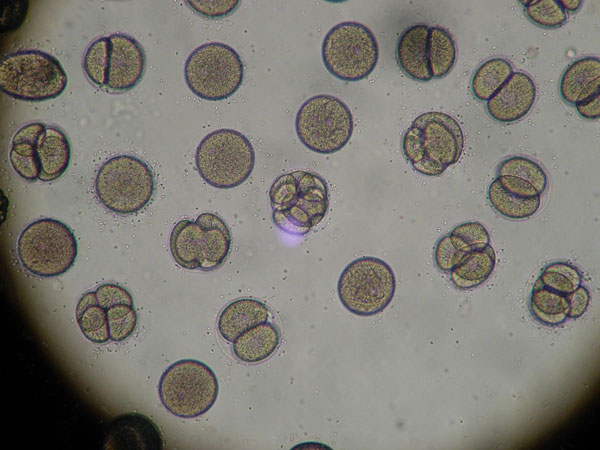
There’s a number of those. Counsyl is another one. There’s a heap of others. I don’t know how I feel about those. I’m nervous about those because pregnancy should be a time of joy, nurturing, love, excitement, preparation, and nesting. You’re talking with the genetic counselor and they’re giving you odds that your child might be having cystic fibrosis, one in 2,000 and then you get another condition that’s one in a million. Another one is like one in a hundred. You’re going through the pregnancy hoping that this isn’t going to be the case. You can do additional testing to get the genetics of the baby. Sometimes if the man and woman are very genetically susceptible and maybe themselves are struggling with a condition, I can see that being beneficial if you can take proactive steps during pregnancy to reduce the risk to the developing baby. Otherwise, these tests are causing fear because I haven’t done them personally. I believe that unless they give you something actionable, how is it beneficial?
It increases your stress levels. It makes you fearful and anxious about the future.
If a woman is fearful, scared and nervous during her pregnancy, the blood flow to the baby is going to be reduced because stress constricts blood vessels. Oxygen into the baby is going to be reduced. The nutrient deliverability to the baby will be reduced plus stress consumes massive amounts of nutrients. The mom will be consuming a lot more nutrients under stress and thus the baby will become more starved of those nutrients. Here you are worried about passing problems onto your developing child, which is understandable. The stress in which you’re looking at a genetic test, which you can’t do anything about because it’s not empowering at all is fear based. In my opinion, there are testimonials on their website to say otherwise. Everyone is different. If it helps you, go for it. If it scares you, don’t.
We didn’t get too far in my list of lightning round questions, but it’s all good. This was a fascinating and powerful conversation. Thank you so much for sharing your wisdom and your experience with my readers. If folks wanted to learn more, wanted to purchase your supplements or various products and go down that path to health, where should we direct them to?
I would encourage everyone to start by reading book, Dirty Genes, because it gets you back on track without having to resort to supplementation. I want people to find their ground zero base without the influence of nutritional supplementation. How far can you get through lifestyle, diet, and environmental changes? That’s first. In the book, in the spot cleaning section, I do recommend various supplements for various certain things. I’ll start cleaning for various chains. In SeekingHealth.com, you can get the strategy and genetic report to analyze your 23andMe and your Ancestry along with nutritional supplementation. The electrolytes are a great place to start.
DirtyGenes.com is the website for the book. Do you have a bonus chapter available on that site?
Yes, we do. The bonus chapter is very good. It shows an example of our writing. I wanted to include it in a book but the publisher says, “Ben, your books already too big.” It’s a great chapter that I wish was in there. You can get it now for free at the website.
Your supplement company, SeekingHealth.com. Do you have a personal website with information? If somebody wanted to reach you directly?
DrBenLynch.com is my personal website. I’m not able to be reached directly. If I was, I wouldn’t get anything done.
Are you also on social media with tweeting out bits of wisdom and so forth?
I’m very active on Facebook and Instagram, so those are my two. YouTube, I’m going to start getting active again, but I do have a lot of YouTube videos that people love. I would say Instagram and Facebook for current events.
Thank you so much. This was helpful. Readers, take some action and clean up your health so you can always do better. I’m going to work on myself too. Thank you, Ben. Thank you, readers.
Important Links:
- Dr. Ben Lynch
- Facebook – Dr. Ben Lynch
- Instagram – Dr. Ben Lynch
- YouTube – Dr. Ben Lynch
- Seeking Health
- DirtyGenes.com
- Folic Acid is Affecting You Negatively – Youtube Video
- Folic Acid Side Effects – Article
- Dirty Genes
- Kurt Johnsen – previous episode
- 23andMe
- Oura Ring
- Mike Mutzel
- Instagram – Mike Mutzel
- High-Intensity Health
- Alessandro Ferretti
- YouTube – Alessandro Ferretti YouTube Channel
- NutritionData.Self
- Optimal PC
- Gallbladder Nutrients
- RESTORE
- Health Ranger
- Berkey
- American Heart Association
- American Cancer Society
- Simplified Genetics
Checklist of Actionable Takeaways










 About Dr. Ben Lynch
About Dr. Ben Lynch
Dr. Ben Lynch is the best-selling author of Dirty Genes and President of Seeking Health, a company that helps educate both the public and health professionals on how to overcome genetic dysfunction. He received his doctorate in naturopathic medicine from Bastyr University. He lives in Seattle, WA with his wife and three sons.
Disclaimer: The medical, fitness, psychological, mindset, lifestyle, and nutritional information provided on this website and through any materials, downloads, videos, webinars, podcasts, or emails is not intended to be a substitute for professional medical/fitness/nutritional advice, diagnoses, or treatment. Always seek the help of your physician, psychologist, psychiatrist, therapist, certified trainer, or dietitian with any questions regarding starting any new programs or treatments, or stopping any current programs or treatments. This website is for information purposes only, and the creators and editors, including Stephan Spencer, accept no liability for any injury or illness arising out of the use of the material contained herein, and make no warranty, express or implied, with respect to the contents of this website and affiliated materials.
LOVED THIS EPISODE
Please consider leaving me a review with Apple, Google or Spotify! It'll help folks discover this show and hopefully we can change more lives!
Rate and Review







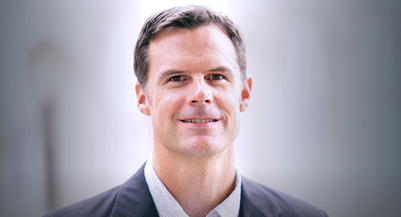
 About Dr. Ben Lynch
About Dr. Ben Lynch
